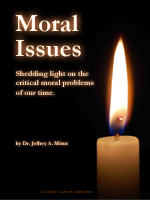Pope issues new rules governing Church charitable agencies
CWN - December 03, 2012
Pope Benedict XVI has issued a motu proprio governing Catholic charities, emphasizing that charitable agencies should operate in conformity with the teachings of the Church.The motu proprio De Caritate Ministranda ("The Service of Charity"), formally dated November 11, provides guidance for diocesan bishops in supervising the charitable activities of the Church. The Pope describes the document as "an organic legislative framework for the better overall ordering of the various organized ecclesial forms of the service of charity, which are closely related to the diaconal nature of the Church and the episcopal ministry."
"The Church's charitable activity at all levels must avoid the risk of becoming just another form of organized social assistance," the Pope writes. He stresses that "practical activity will always be insufficient," and insists that Church charities should be "helping people to appreciate the importance of sharing, respect and love in the spirit of the Gospel of Christ."
In his introduction to the document, Pope Benedict notes although the Code of Canon Law clearly establishes the duties of bishops in teaching the faith and celebrating the sacraments, the Code "does not expressly mention charity as a specific sector of episcopal activity." Because charitable action is an essential part of the Church's ministry, the Pope explains, he has issued the motu proprio to address this gap in the Church's law.
De Caritate Ministranda contains 15 articles governing the diocesan bishop's duties regarding Catholic charitable agencies. The document instructs bishops to encourage private charitable ventures as well as official Church-sponsored efforts. But the motu proprio cautions that "to the extent that such activities are promoted by the Hierarchy itself, or are explicitly supported by the authority of the Church's Pastors, there is a need to ensure that they are managed in conformity with the demands of the Church's teaching and the intentions of the faithful."
A charitable agency may use the name "Catholic" only with the written consent of the competent ecclesiastical authority, the Pope writes. The bishop, for his part, "istake care that those who work in the Church's charitable apostolate, along with due professional competence, give an example of Christian life and witness to a formation of heart which testifies to a faith working through charity."
The motu proprio expressly states that the bishops should not allow "publicity being given through parish or diocesan structures to initiatives which, while presenting themselves as charitable, propose choices or methods at odds with the Church's teaching." Article 10(3) of the document stipulates:
In particular, the diocesan Bishop is to ensure that charitable agencies dependent upon him do not receive financial support from groups or institutions that pursue ends contrary to Church's teaching. Similarly, lest scandal be given to the faithful, the diocesan Bishop is to ensure that these charitable agencies do not accept contributions for initiatives whose ends, or the means used to pursue them, are not in conformity with the Church's teaching.
Some links will take you to other sites, in a new window.
